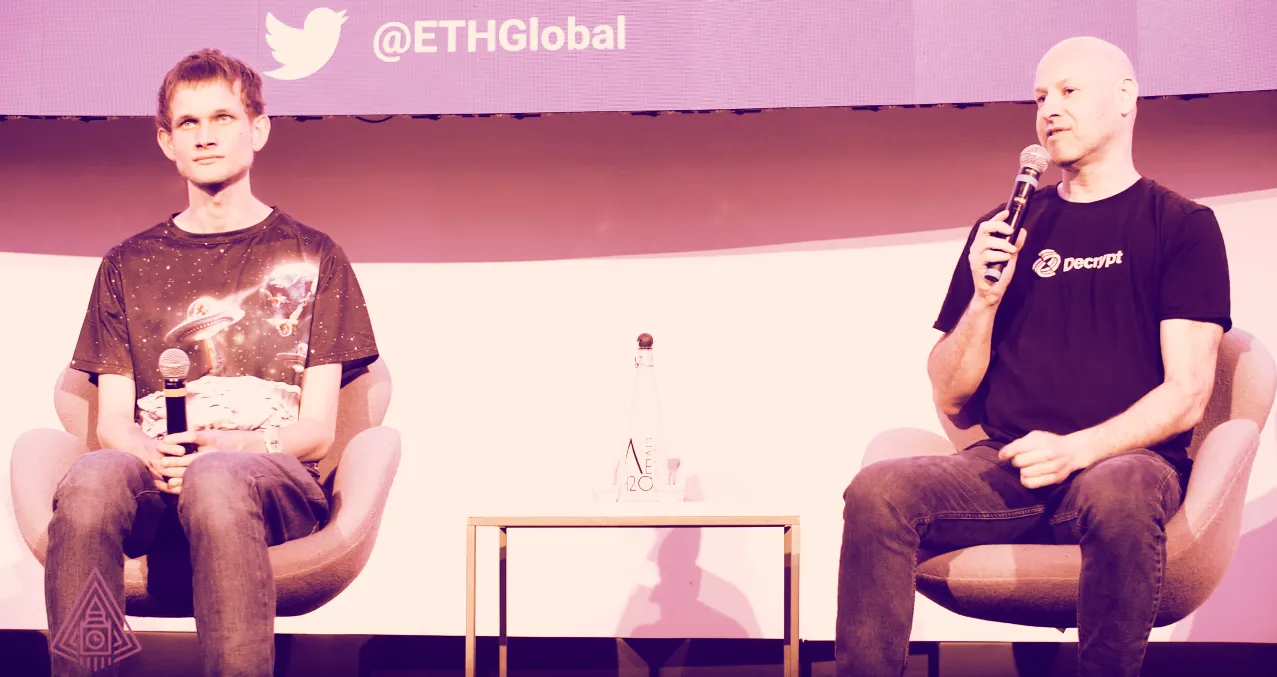In brief
- Joe Lubin and Vitalik Buterin took to the stage in London to explore DeFi, sharding and Ethereum 2.0.
- Buterin said sharding would be ready to start deployment this year.
- Lubin meanwhile explored how enterprise was ready to step into blockchain.
Vitalik Buterin, the co-founder of Ethereum, and Joe Lubin, the founder of ConsenSys, took to the stage at ETHLondonUK yesterday to discuss the future of Ethereum in 2020. The main takeaways? Ethereum will scale, become more private, and DeFi is the space to watch.
Buterin said that new technologies will help scale the Ethereum network, which has been beleaguered by network slowdowns and is close to bursting. Should the network hit maximum capacity, the network will slow down and become more expensive. That’d discourage companies from building on it.
Buterin estimates that one technology, sharding, will scale the network by “somewhere between a factor of a hundred and a few hundred. Sharding breaks the network down into smaller parts, called shards, that can each process thousands of transactions. It’s still in development, but could be implemented as early as this year. He said the number that could increase if people make use of other scaling technologies, like optimistic rollups, which “roll up” multiple transactions into one.
Buterin also said that the Ethereum ecosystem will have “increased privacy” in the next year. “There's definitely an ever-growing realization of the need to not have all of your activity be publicly linkable to all of your other activity,” he told the audience. He pointed to Tornado Cash, which lets users make private Ethereum transactions.
Given recent issues around so-called flash loans, where people exploited price oracles for money, Buterin thinks that more work needs to be done on decentralized oracles, which source information in a trustless and decentralized way. More work on “different kinds of oracle designs” should be completed to make them “more secure and decentralized,” he said.
Lubin, who runs one of the largest development houses for enterprise blockchain products, spoke about the future of business on Ethereum.
He considers decentralized finance, or DeFi “astonishing,” and said that, “once we work it out and get it really functional, it’s going to be a massive magnet that draws in the rest of the world—either through new business models or legacy businesses and essentially becomes the decentralized global economy.” Decentralized finance generally refers to products like loans, investment, and insurance, as well as decentralized cryptocurrency exchanges, that run on the blockchain. It’s still a small space, but it’s growing: last month, it crossed the $1 billion mark.
Lubin also thinks that large and medium-sized companies will start to conduct significant parts of their businesses on the public blockchain. Just a few days earlier, Lubin’s company, ConsenSys (which also funds Decrypt) announced with Microsoft and EY a new protocol that enables organizations to interact with one another, share information, interoperate with business processes, and do all that with full confidentiality on the Ethereum blockchain.





